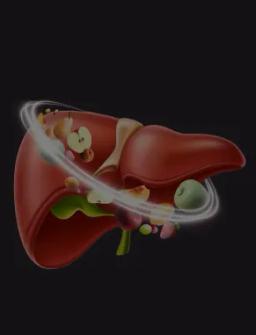How Will AI Affect Mental Health In 2025? 7 Ways AI Will Impact Minds!
Health
Published on: 18-Dec-2024
10 min read
15 views
Mahi
How Will AI Affect Mental Health In 2025? 7 Ways AI Will Impact Minds!

share on
In an age where artificial intelligence is rapidly redefining how we interact with technology, the question arises: how will AI affect mental health in 2025? As society increasingly turns to AI-powered tools for therapy, emotional support, and mental health monitoring, the possibilities seem promising, yet concerns loom large. Will AI help us identify mental health issues earlier, create personalised care plans, and make therapy accessible? Or will its misuse, over-dependence, and potential for social isolation outweigh its benefits?
From gamified therapy to biofeedback innovations, AI is set to revolutionise how we understand and care for mental well-being. Knowing these advancements is not enough; we must also understand how to address challenges in mental health care.
This blog explores nine ways AI will impact minds by 2025, highlighting its transformative potential and offering practical tips to overcome its risks, ensuring technology works perfectly with human needs. So, let’s get started!
Table Of Contents
1. 9 Ways AI Will Impact Your Mental Health
2. 5 Tips To Reduce Negative Impacts Of AI On Mental Health
3. The Final Say
4. FAQs
5. References
7 Ways AI Will Impact Your Mental Health
Let's discuss and understand these positive and negative impacts as we explore the effects of AI and strive to take its benefits while overcoming its risks:
1. Accessible AI-Powered Mental Therapy
The rise of AI-powered mental therapy platforms is transforming access to mental health care by removing barriers such as geographical distance, cost, and stigma. With AI-driven chatbots and virtual therapists, individuals can engage in real-time conversations to address their emotional concerns from the comfort of their homes. These tools offer cognitive behavioural therapy (CBT) techniques, mood tracking, and personalised coping strategies, reducing digital eye strain and ensuring that users receive targeted assistance without waiting weeks for an appointment.
Furthermore, these tools often operate 24/7, providing immediate support during moments of distress. However, the absence of human empathy in such interactions may limit their ability to replace conventional therapy entirely, underscoring the need for balanced integration with human-driven care.
Try ToneOp Fit's 1-Year Transformation Plan, which offers a holistic approach to wellness. Combining a Sattvic diet, natural therapies, and mind-body wellness techniques, the program addresses internal and external factors contributing to mental health concerns. Also, stress-busting and ancient yogic practices will help awaken your body's natural detoxification. The program also includes rejuvenating herbal massages to promote circulation, reduce inflammation, and enhance relaxation.
2. Gamified Therapy Treatment Modalities
AI is making therapeutic processes gamified. This makes mental health treatment more engaging and motivating. The AI-driven application will allow users to participate in therapeutic exercises through gamification, such as the use of points, rewards, and interactive challenges. Such tools can create real-world scenarios for a user to practice coping strategies and problem-solving skills in a controlled environment.
For instance, virtual reality (VR)-based therapies for anxiety or post-traumatic stress disorder (PTSD) immerse users in safe simulations of triggering environments, reducing their sensitivity. Gamified therapy increases user engagement and allows tracking of user progress using advanced analytics that can inform therapists. With this method, there is tremendous potential, yet it must not lose the edge of entertainment in delivering therapeutic value in order to keep mental health outcomes more prominent than user interest in itself.
3. Early Mental Concerns Detection
AI’s most positive impact is its ability to detect mental health issues early. Through sentiment analysis, voice recognition, and behavioural data from digital interactions, AI can identify subtle signs of mental distress, like excessive depression, anxiety, or suicidal ideation, long before they escalate. For example, machine learning algorithms analyse patterns in text messages, social media activity, and even facial expressions to flag concerns.
This proactive approach makes it possible for doctors to intervene early before the mental health condition worsens. However, that would all depend on its accuracy and ethical use; otherwise, there could be dire consequences by false positives or breaches of privacy. Still, early detection with AI has become a game-changer that changes the focus from purely reactive treatment to preventive care in mental health.
4. Personalised Mental Care Plans
AI enables the creation of highly tailored mental health care plans by analysing vast amounts of user data, including symptoms, preferences, and treatment responses. Unlike traditional approaches, AI-driven platforms continuously adapt recommendations to the unique needs of each individual. For instance, an AI system might suggest specific mindfulness exercises for a user experiencing mild anxiety or recommend lifestyle changes and therapy options for someone dealing with chronic stress.
These personalised interventions improve treatment outcomes and empower participation in mental health journeys, like reducing stress and reasons for no sleep at night. However, the reliance on user data raises concerns about privacy plus security, emphasising the importance of safeguards to protect sensitive information.
5. Allow Biofeedback And Neurofeedback
Artificial intelligence is revolutionising biofeedback and neurofeedback therapy with new possibilities for monitoring mental health improvement. Using sensors connected to AI algorithms, the tools analyse physiological signals, including heart rate, brain activity, and skin conductivity, for real-time feedback. Stress levels or patterns of brain wave activity can be visualised, and the user learns to self-regulate by techniques such as deep breathing or focused meditation.
For example, AI-powered neurofeedback devices train individuals with ADHD or anxiety disorders to achieve desired mental states by rewarding positive neural patterns. This technology empowers users with greater self-awareness and control over their mental wellness.
6. Reduced Mental Health Help Stigma
AI helps in breaking the stigma surrounding mental health by providing discreet plus nonjudgmental avenues for seeking help. Many people hesitate to approach traditional therapists due to fear of being judged or societal taboos. AI-driven mental health platforms eliminate these concerns by offering anonymous support.
Chatbots and virtual assistants encourage users to share their feelings without fear of stigma, promoting openness and self-expression. Also, AI’s presence in mental health awareness campaigns helps normalise discussions about emotional wellness, making it easier for professional help when needed.
Try ToneOp Care’s Spirulina Powder. This nutrient-dense superfood can help increase haemoglobin levels, boost your immune system, and significantly boost energy. It’s a vegan, gluten-free option packed with antioxidants and nutrients, making it a popular choice even among students.
7. Augmenting Human Therapists
Rather than replacing human therapists, AI is enhancing their capabilities by providing valuable tools and insights. AI systems can handle repetitive tasks like initial assessments, scheduling, and progress tracking, allowing therapists to focus on deeper, more personalised client interactions. Advanced analytics help therapists identify patterns of tension-type headaches and measure treatment effectiveness, leading to data-driven decision-making.
For instance, AI can recommend evidence-based interventions based on the client's history and current symptoms. Also, with complete records and tracking in real-time, AI maintains continuity of care and results. However, AI is integrated as an auxiliary tool and not as a replacement since human empathy and intuition cannot be replaced in therapy settings.
8. Overdependence And Isolation
While AI offers immense benefits, over-reliance on it for mental health care may lead to unintended consequences such as increased social isolation. Dependence on virtual therapists or chatbots could reduce human interaction, often vital to emotional healing. Also, excessive reliance on self-help AI tools discourages community-based support.
This overdependence can exacerbate feelings of loneliness and disconnection, particularly in vulnerable populations. Therefore, using AI as a supportive tool rather than a standalone solution is crucial, encouraging a balanced approach combining technology and human connection.
9. Potential For Manipulation Or Misuse
As with every powerful technology, AI in mental health care poses the risk of misusing it. Malicious actors could exploit sensitive mental health data for financial or political gain and breach trust and privacy. The algorithms may also be biased toward perpetuating harmful stereotypes or delivering inaccurate recommendations, which is detrimental to the well-being of users.
Moreover, AI used in mental health marketing or persuasive design may manipulate vulnerable individuals to make decisions that are not in their best interest. The risks can be minimised by having robust ethical guidelines and regulatory frameworks that ensure AI is a force for good in mental health care.
Try ToneOp Fit's comprehensive Diet+Fitness Weight Loss Plan, which offers the best of both worlds: delicious, easy-to-follow recipes and engaging live workout sessions. You'll achieve your goals and feel your best with personalised guidance from a dedicated fitness coach. Enjoy the convenience of home workouts, a vast library of pre-recorded videos, and 24/7 support.
Also Read: Guide To Somatic Therapy & Exercises For Trauma Recovery
5 Tips To Reduce Negative Impacts Of AI On Mental Health
Artificial intelligence (AI) rapidly transforms our world, offering incredible opportunities and potential challenges. One area of concern is the impact of AI on our mental health. Note these tips to help overcome the adverse effects:
Also Read: Good Morning Habits For A Stronger Body And Better Fitness
The Final Say
Ultimately, in 2025, AI will likely play an increasingly important role in mental healthcare. We can anticipate many AI-powered tools supporting diagnosis, treatment planning, and patient monitoring. This will likely improve access to care, especially in underserved communities, and facilitate more personalised treatment approaches. However, it addresses the ethical considerations surrounding AI in mental healthcare, including data privacy, algorithmic bias, and the importance of human expertise and oversight.
FAQs
1. Can AI help diagnose mental health conditions more accurately?
Yes, AI can notably increase the accuracy of the diagnosis of mental health problems. By looking at hundreds of thousands of datasets--medical records, brain scans, and even posts on social media--AI algorithms can easily identify subtle patterns that have been missed by human clinicians. As a result, there's an earlier intervention and possibly more effective treatment plans.
2. How can AI help improve the quality of life for people with mental conditions?
AI will revolutionise mental healthcare with the offer of customised treatment plans, constant 24/7 support from chatbots and virtual assistants, and remote monitoring of patient progress. More care and better accessibility for wellness can be achieved when dealing with mental health conditions.
3. How can AI help individuals with autism spectrum disorder (ASD)?
The application of AI works best for ASD because it provides communication aids like text-to-speech technology and social story generators. It can also create a personalised learning plan that addresses their unique learning styles. Also, AI can identify children at high risk for developing ASD, which may allow for early intervention and, thus, better outcomes.
4. Can AI help address the mental health needs of children and adolescents?
AI helps address the mental health needs of children and adolescents by identifying those at risk through data analysis, providing confidential support through AI-powered platforms, plus creating interventions considering their developmental stages. This can help overcome the stigma of mental health support and improve access to care.
References
About ToneOp
ToneOp is a platform dedicated to improving and maintaining good health through a comprehensive range of goal-oriented health plans with up to 3 Coach support. With a range of Weight Management, Medical Condition, Detox Plans, and Face Yoga Plans, the app also provides premium health trackers, recipes and health content. Get customised diet, fitness, naturopathy & yoga plans and transform yourself with ToneOp.
Subscribe to Toneop Newsletter
Simply enter your email address below and get ready to embark on a path to vibrant well-being. Together, let's create a healthier and happier you!
Download our app
Comments (0)
Leave a reply
Your email address will not be published. Required fields are marked *


















